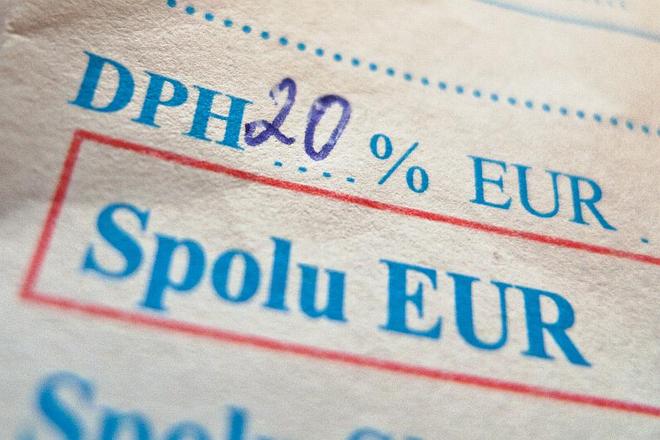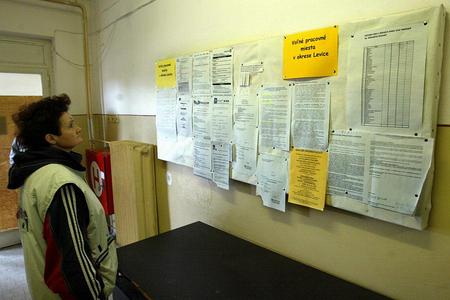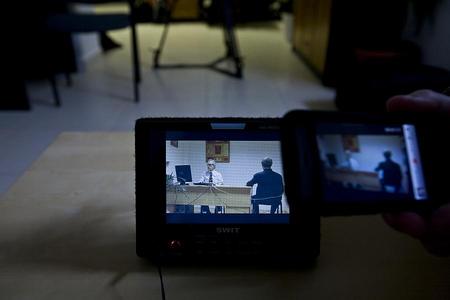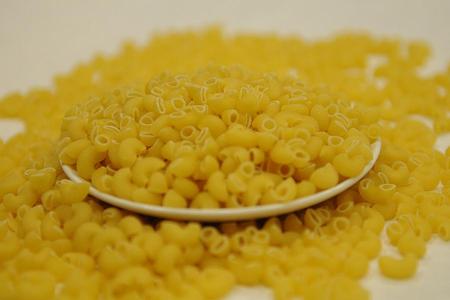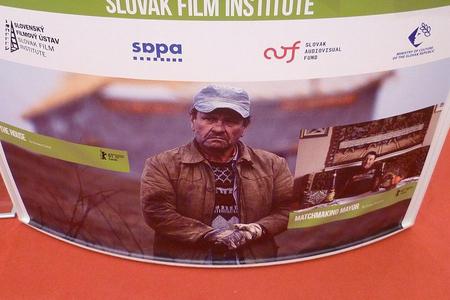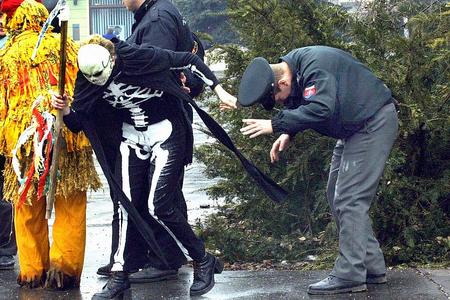Archive of articles - February 2011, page 2
If you desire to read an old article, use the search bar or select the publication date.
Many taxes go up in 2011
LAST year the government of Iveta Radičová pushed an austerity package through parliament designed to save the state €1.7 billion through a combination of tax increases and expenditure cuts. While preliminary state budget figures have now been released for January, analysts say it is too early to determine whether the adopted measures are achieving the desired results.
Paying income taxes
ALL private individuals whose taxable income for 2010 exceeded €2,012.85 are obliged to submit a tax return and pay any income taxes due by March 31. The non-taxable income of private individuals is €4,025.70 providing their tax base is equal or below €15,387.12. Private as well as legal entities can postpone submitting their tax return, as well as paying any income tax due, by up to three months. They need only announce such a postponement to their respective tax office. The income tax for both private individuals and corporate entities is 19 percent.
Auditing profession faces changes
THE FINANCIAL crisis has raised a multitude of questions about the roles and responsibilities of professional auditors. In autumn last year the European Commission published a Green Paper on Audit which has initiated extensive discussion about the responsibilities of auditors, their governance structures and potential changes that may be warranted in this important profession. The EC received about 700 responses with about 10,000 pages of suggestions in reaction to its document.
Cestoviny
IF YOU thought the spaghetti western was a dead genre, think again – the Slovak government’s idea to hand out bread (chlieb) and pasta (cestoviny) to the poor to save them from rising food prices promises enough action, drama, and comedy to entertain not only the entire country, but the entire continent. And the good, the bad and the ugly are all joining the performance.
Nitra – a hotbed of regional theatre
THEATRE professionals and amateurs – actors, directors, critics, and students – from throughout the countries of the Visegrad Group (V4) have been regularly meeting in Nitra as two festivals supported by the Visegrad Fund are held each year in this central Slovak town. At the spring festival, actors from Slovakia, the Czech Republic, Hungary and Poland meet in the Old Karol Spišiak Theatre and present theatre reflecting the culture of the central European region. Autumn is dedicated to the Divadelná Nitra Festival which ranks among the top theatre festivals held within the V4 countries.
State drafts new rules to boost investment
LONGER tax holidays, more transparent rules, a level playing field for foreign and domestic investors, and a friendlier approach to small and medium-sized businesses could all soon be employed to lure new investors to less-developed, high-unemployment regions of Slovakia. Proposed changes to the legislation on investment stimuli also aim to make state assistance available to a wider group of investors.
2010 tax revenues reported
PRELIMINARY figures show that tax revenue flowing to the state in 2010 amounted to €7.962 billion, according to a document published by the Finance Ministry’s Financial Policy Institute in mid January. That revenue lagged €37 million behind the budget that was revised by the government during 2010 and was much less than the original budget which projected revenue of €8.62 billion.
Results of polygraph are viewed as vindication
THE RESULTS of polygraph tests indicate that Milan Andrášik and Miloš Kocúr were not involved in the death of Ľudmila Cervanová, a young medical student who was killed in 1976 – a case that has generated controversy for more than three decades. The two men took the tests in Bratislava on February 16, stating that they had nothing to do with the crime and that their previous admissions had been coerced during the original police investigation in 1981. The results of polygraph tests, however, are not admissible as evidence in Slovak courts.
Overcrowded housing is a problem
ALMOST 40 percent of the inhabitants of Slovakia live in overcrowded dwellings, according to a Eurostat survey of housing conditions across the EU conducted in 2009.
Government's plan for inflation: free pasta
GLOBAL rises in prices for food, raw materials and energy in recent months have been making governments edgy and populations worried. Now the Slovak administration led by Iveta Radičová says it has a plan to temper these price rises and soften their impacts on the most vulnerable people in society. The government says that, among other things, it will distribute flour and pasta to those on state assistance and move to trim electricity bills. But its plan provoked instant derision from the largest opposition party, Smer, which likened it to “ration coupons” for the poor.
Slovak cinema once again holds promise
AFTER A slight downtick last year, the future of Slovakia’s cinema production again looks promising. The first major film event of 2011, the recent Berlinale, brought into the spotlight several young talents who might become the leaders of what the Berliner Zeitung called “a small Czech-Slovak New Wave”.
Speaking in minority tongues
“WEAK knowledge and strong emotions” accompany the law on the use of minority languages now en route to parliament, according to its author, Deputy Prime Minister for Minorities and Human Rights Rudolf Chmel. But while the law will affect the life of minorities other than Hungarians, Chmel, a nominee of the Most-Híd party, admits that it is the unresolved relationship between Slovakia and Hungary that might make the law’s way through the parliament tougher.
Problems with e-tax may re-occur
LAST year Slovakia’s online system for submitting income tax returns collapsed after a large number of taxpayers opted to use the system instead of going to a tax office to file their return in person. The Tax Directorate admits that problems including system slowdowns or complete failure may be repeated this year. It has prepared an alternative offline solution, the SITA newswire wrote in mid February.
Countrywide Events
Western SLOVAKIA
January jobless figures spike
SLOVAKIA’S unemployment statistics for January came as something of a cold shower after the upbeat numbers that the country’s economic growth had posted for 2010.
Carnival traditions in Slovakia
THE PERIOD of Carnival begins one day after Epiphany on January 7 and ends on Ash Wednesday (Caput jejunii) on March 9 and this period was known in the central European region, especially in Slovakia, even in the pre-Christian era when there were community processions going from house to house to welcome spring and bid farewell to winter. Eastern Slavonians knew this period, too, and they celebrated it as “maslenice”, a period rich in butter and fat as they wanted to get satiated before the time for fasting during Lent. Traditional meals included various types of doughnuts, fried cakes, strudels and slaughterhouse delicacies.
Police chief sets specific goals
REDUCING the number of road accidents is the main goal of the Slovak police force in 2011, said Police Corps president Jaroslav Spišiak, who offered to resign if his officers did not meet this year’s goals.
Quote of the week
“Do we live somewhere in the jungle, where we need humanitarian vehicles driving around distributing flour and pasta?”
Slovaks flee violence in Libya
SLOVAKS started leaving Libya after protests and violence spread across many Libyan cities in mid February. The first two Slovaks, a mother and her daughter, left the country on February 24 onboard a Ukrainian plane, the Slovak Foreign Ministry stated. The two were picked up in Kiev by representatives of the Slovak embassy, the SITA newswire reported.
- No more photos or bank statements? Slovakia moves to ease residence process
- Top 10 events in Bratislava for foreigners
- News digest: Prosecutor seeks jail for NBS Governor Kažimír as his political support wanes
- Weekend: Celebration of fun comes to Malacky Photo
- Slovakia loses another EV model to Spain as Stellantis chooses Zaragoza over Trnava
- News digest: Fico’s bloc wants to save money by restricting electoral access
- When will the opposition wake up to reality?
- Slovakia plans to restrict access to new medicines amid funding shortfall
- Maria Theresa on the banks of Bratislava
- No more photos or bank statements? Slovakia moves to ease residence process
- Weekend: Celebration of fun comes to Malacky Photo
- Top 10 events in Bratislava for foreigners
- News digest: Fico’s bloc wants to save money by restricting electoral access
- 3 free things to do in Bratislava in the next seven days
- Digital Jarvis is real now. He is coming for your to-do list
- Slovakia plans to restrict access to new medicines amid funding shortfall
- Maria Theresa on the banks of Bratislava
- No more photos or bank statements? Slovakia moves to ease residence process
- News digest: Violent gang in Bratislava is under arrest
- The Kremlin’s security agency has a Russian contractor in Slovakia - no one has noticed
- 3 free things to do in Bratislava in the next seven days
- Weekend: Celebration of fun comes to Malacky Photo
- Digital Jarvis is real now. He is coming for your to-do list
- Top 10 events in Bratislava for foreigners
- Maria Theresa on the banks of Bratislava
- A mayor resigns over €2.7 million fraud scandal at town hall
- Show me your moves! Slovak hockey stars share their best pick-up lines
- No more photos or bank statements? Slovakia moves to ease residence process
- He designed Gatwick. But this is his masterpiece
- Fico praises China and Vietnam as models, says liberal democracy has failed
- News digest: Violent gang in Bratislava is under arrest
- The compass points to Kúty, and people are starting to follow
- News digest: Prosecutor seeks jail for NBS Governor Kažimír as his political support wanes
- Slovakia loses another EV model to Spain as Stellantis chooses Zaragoza over Trnava
- Slovak female triathlete shatters barriers with historic win at Himalayan event
- Weekend: Celebration of fun comes to Malacky Photo
- News digest: Fico’s bloc wants to save money by restricting electoral access
- Slovakia plans to restrict access to new medicines amid funding shortfall
- No more photos or bank statements? Slovakia moves to ease residence process
- Top 10 events in Bratislava for foreigners More articles ›

